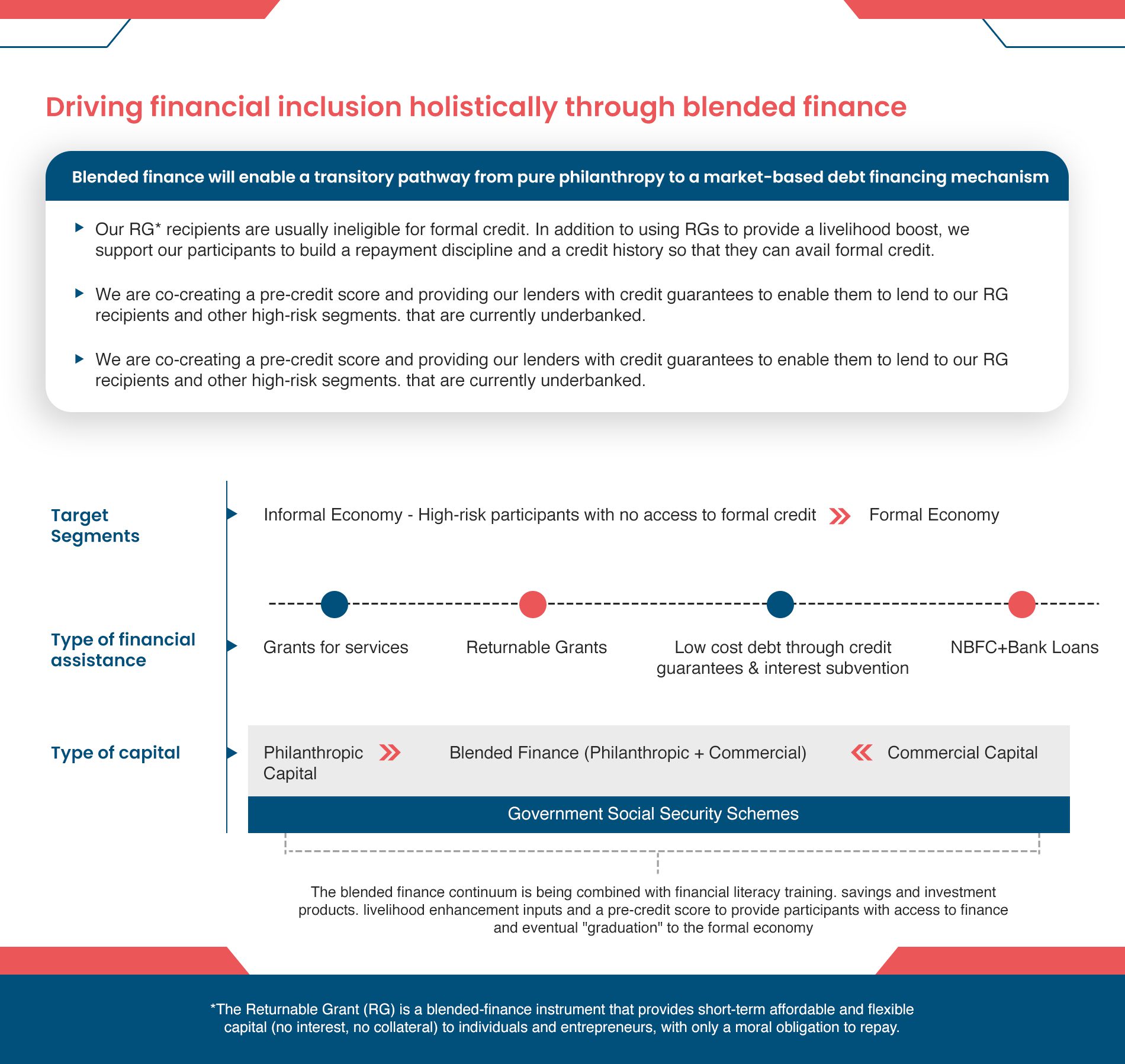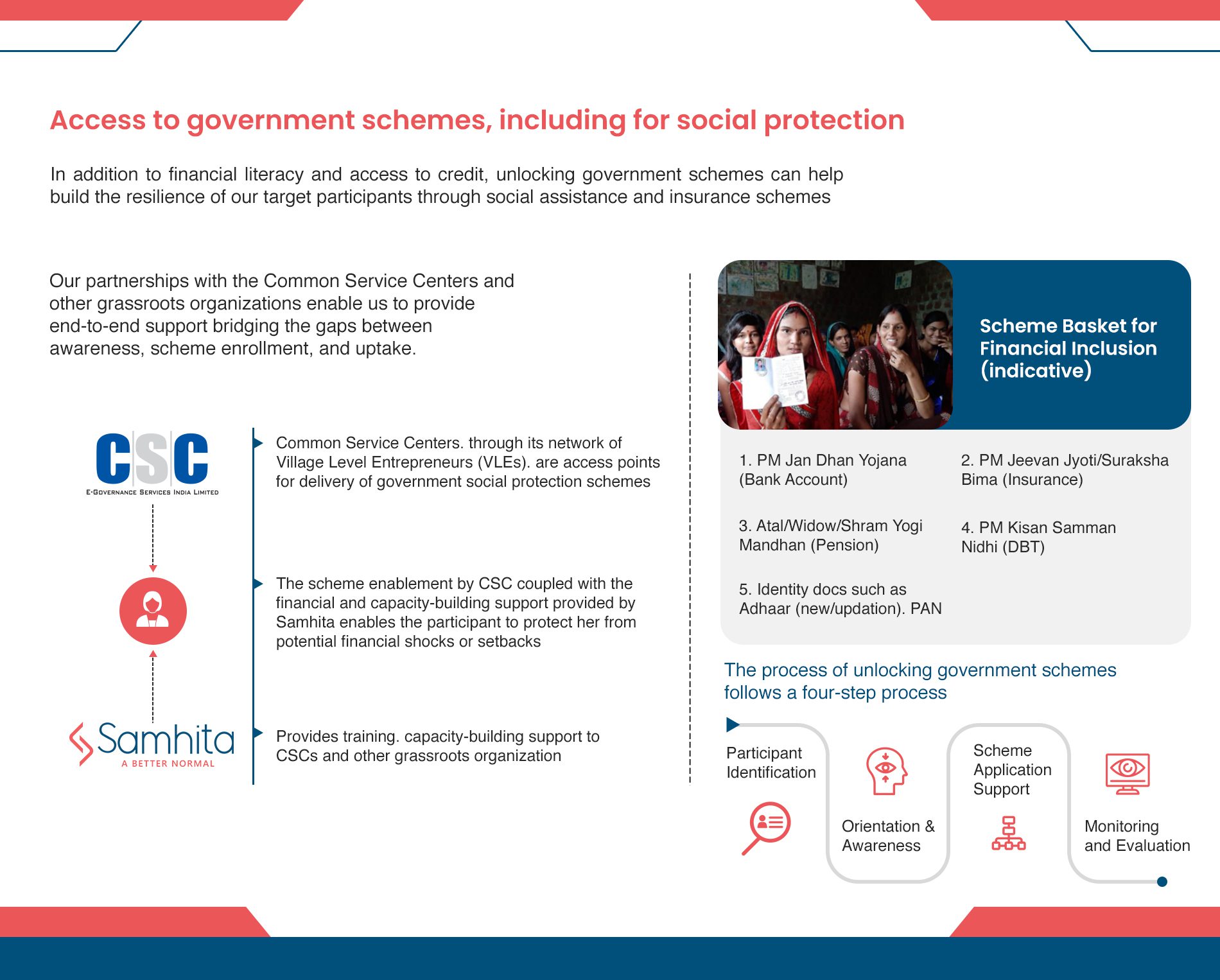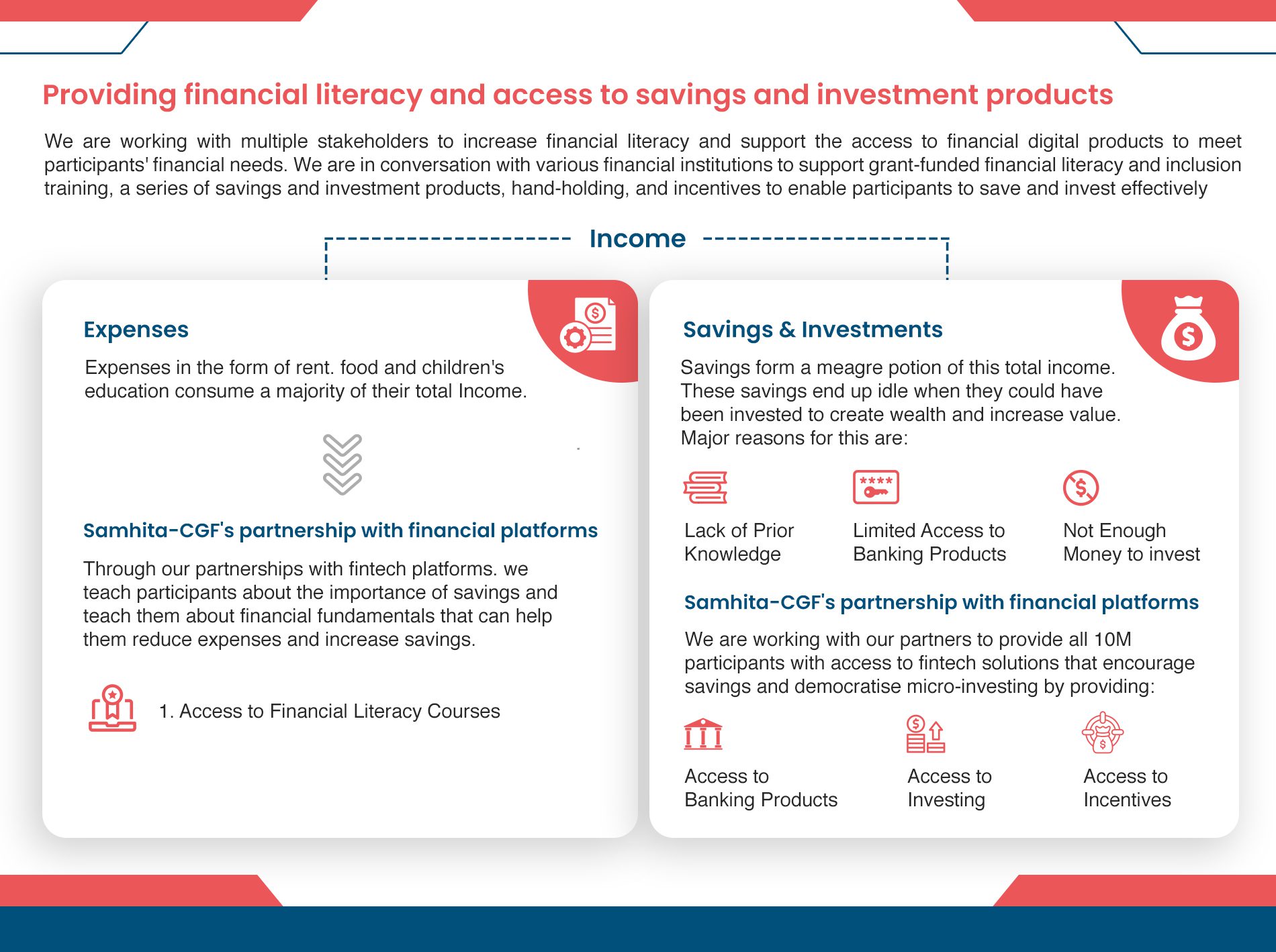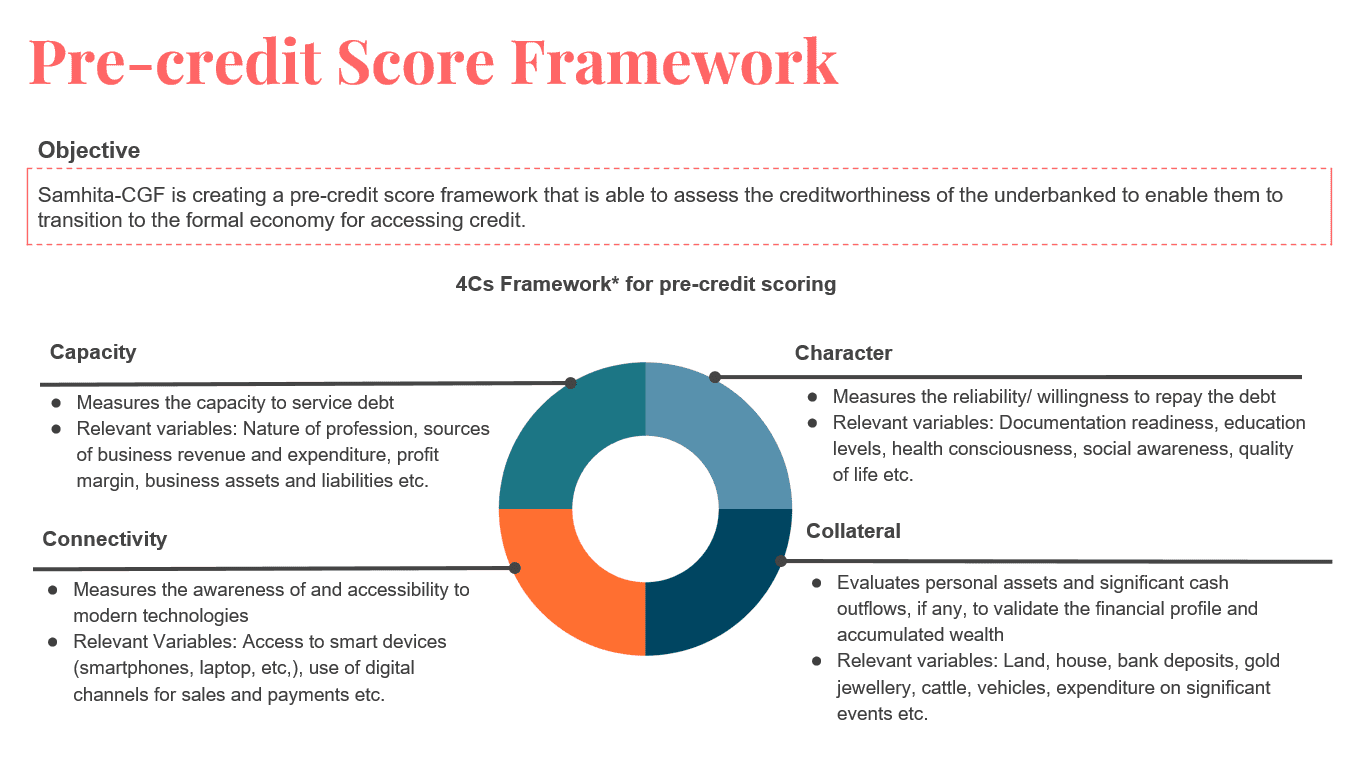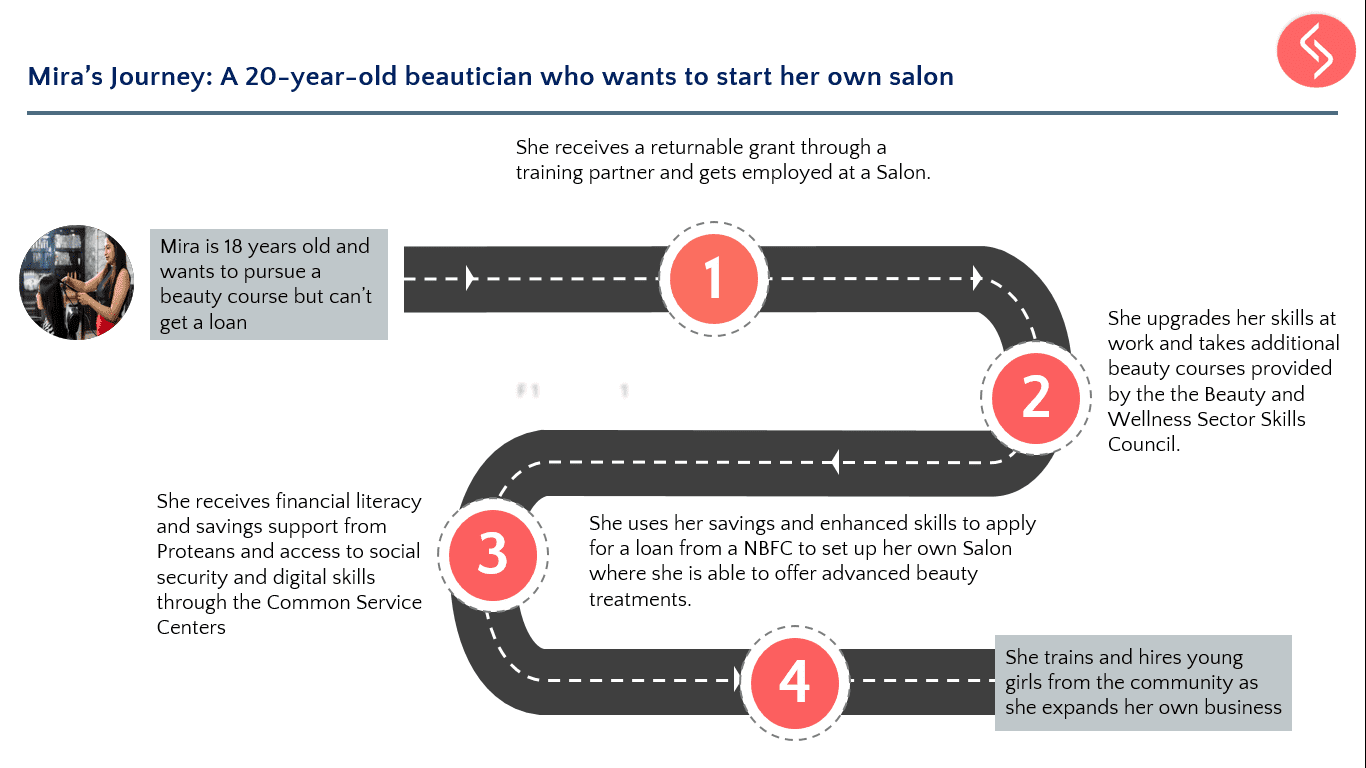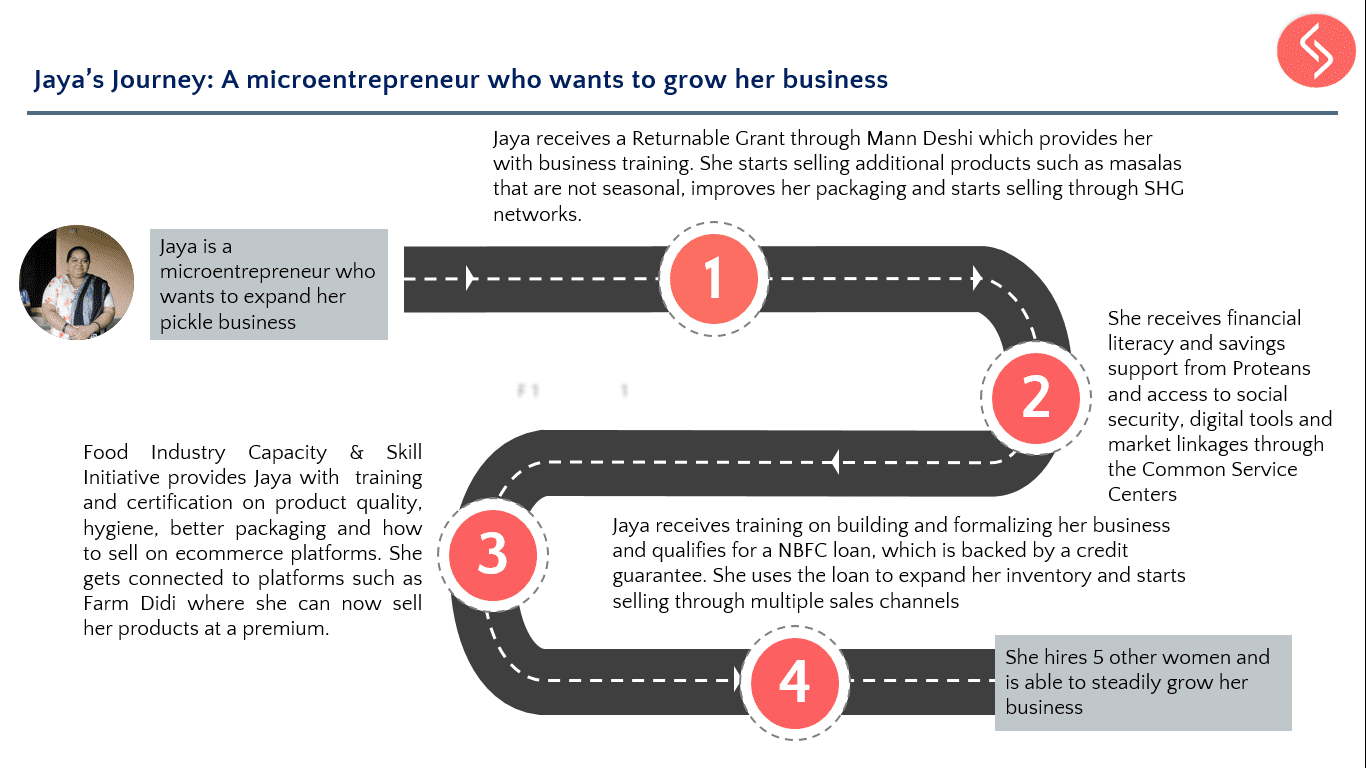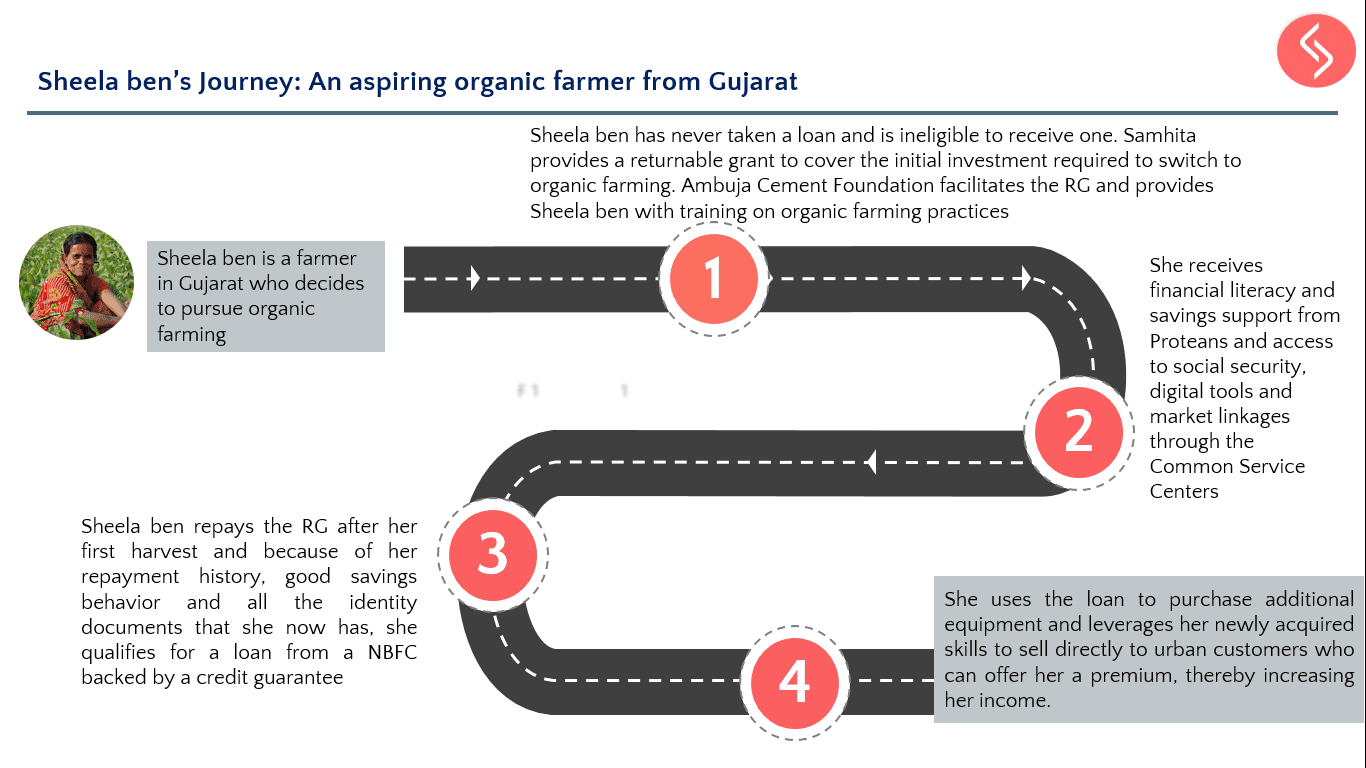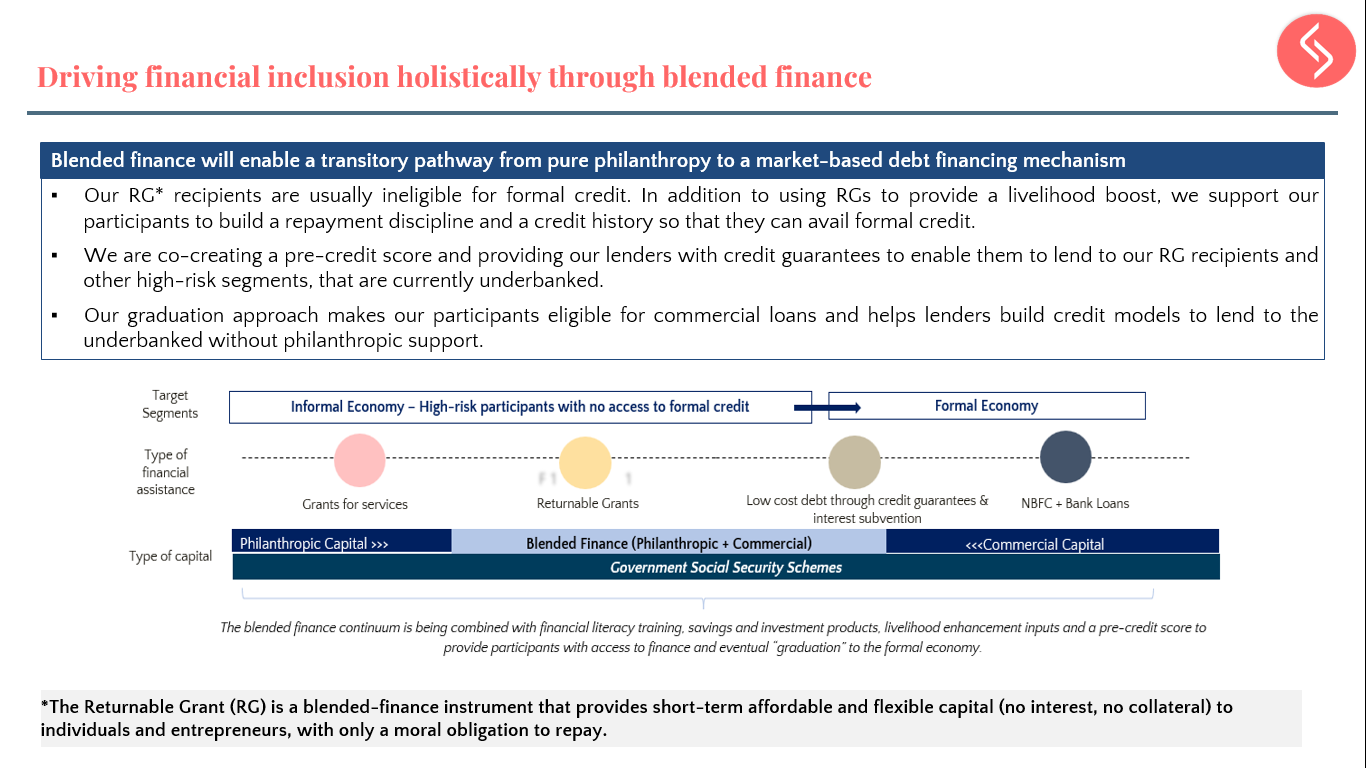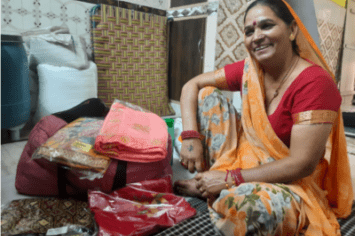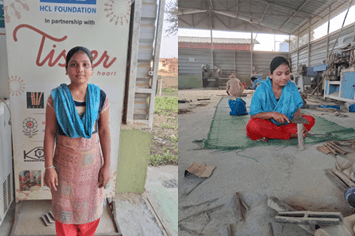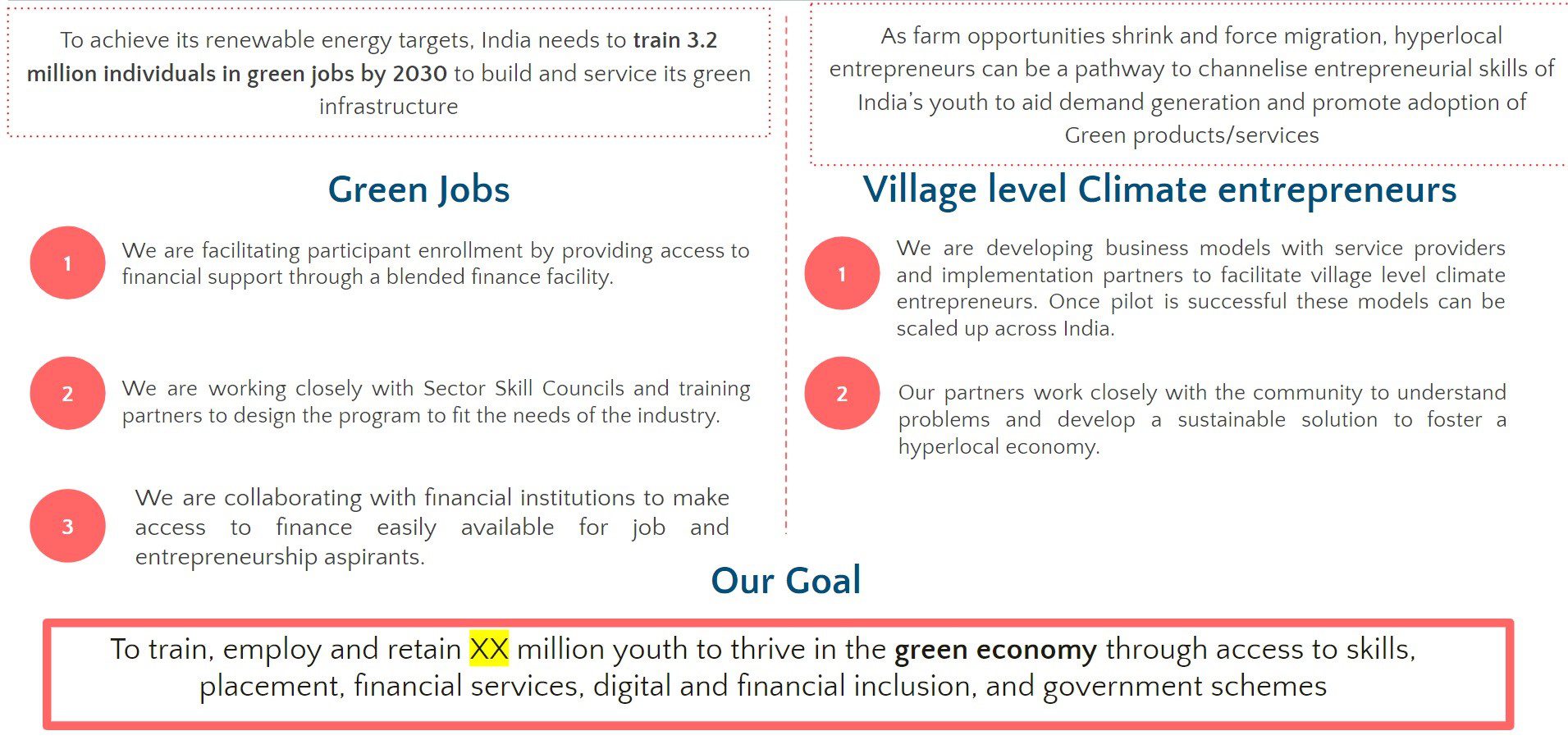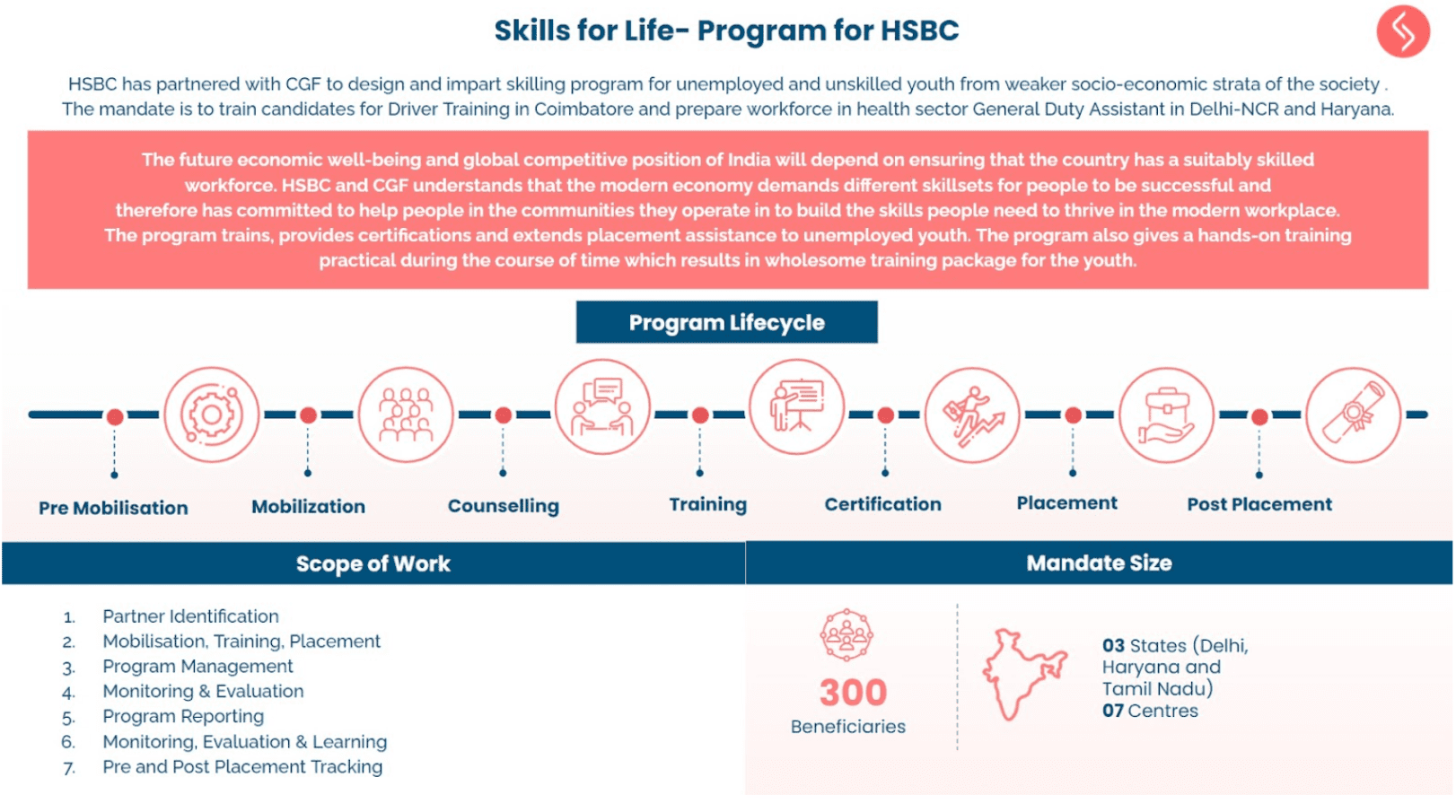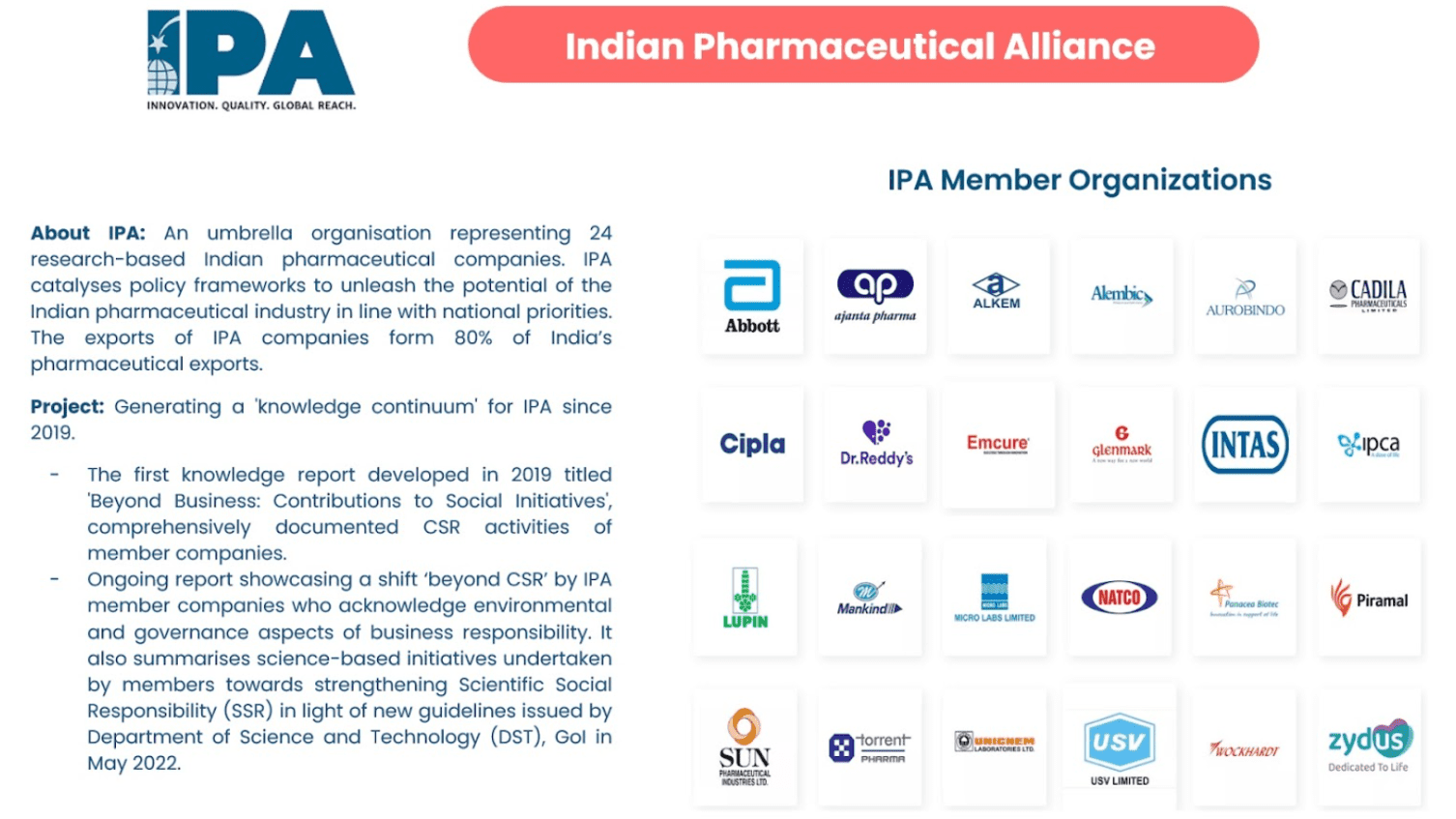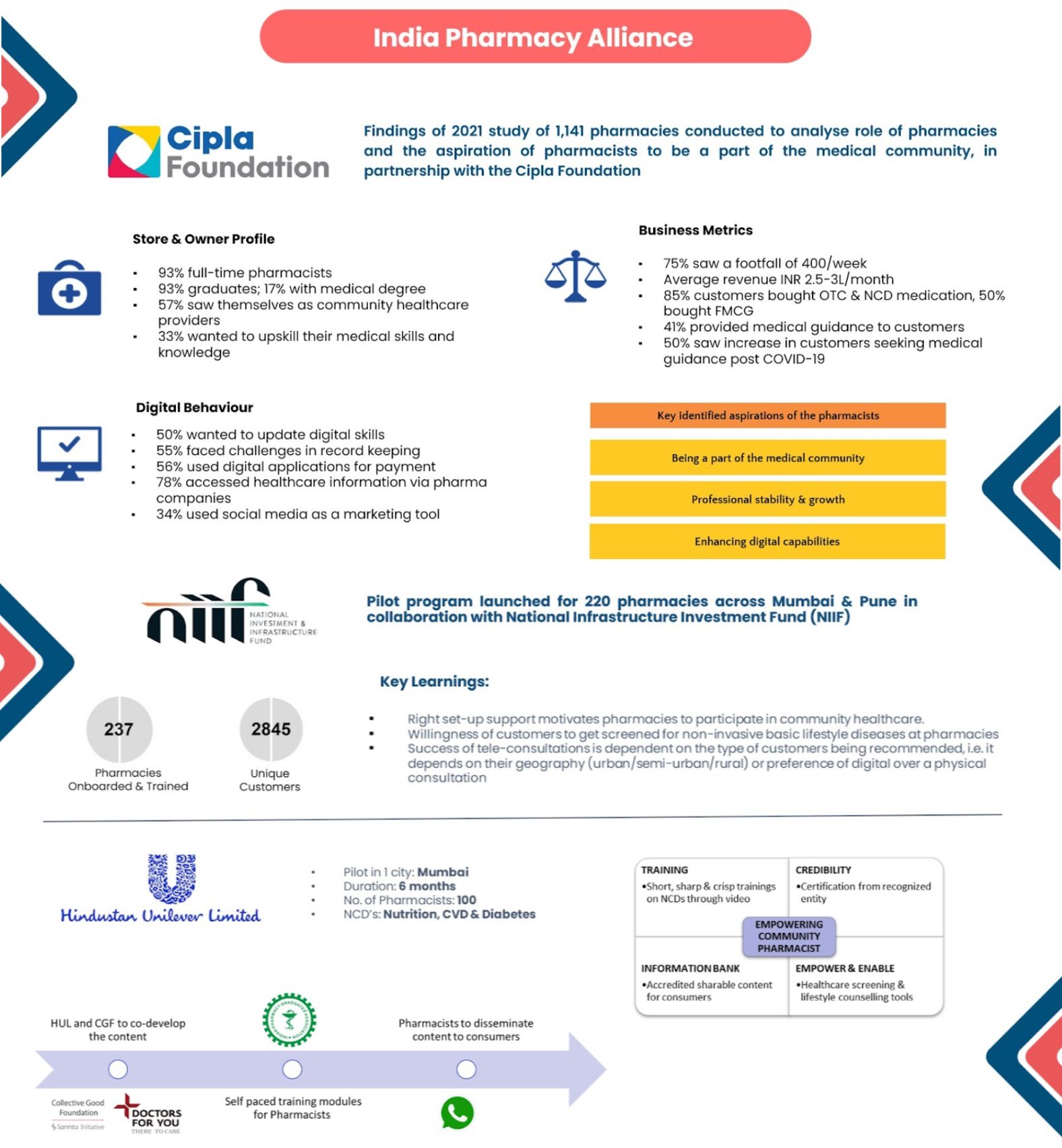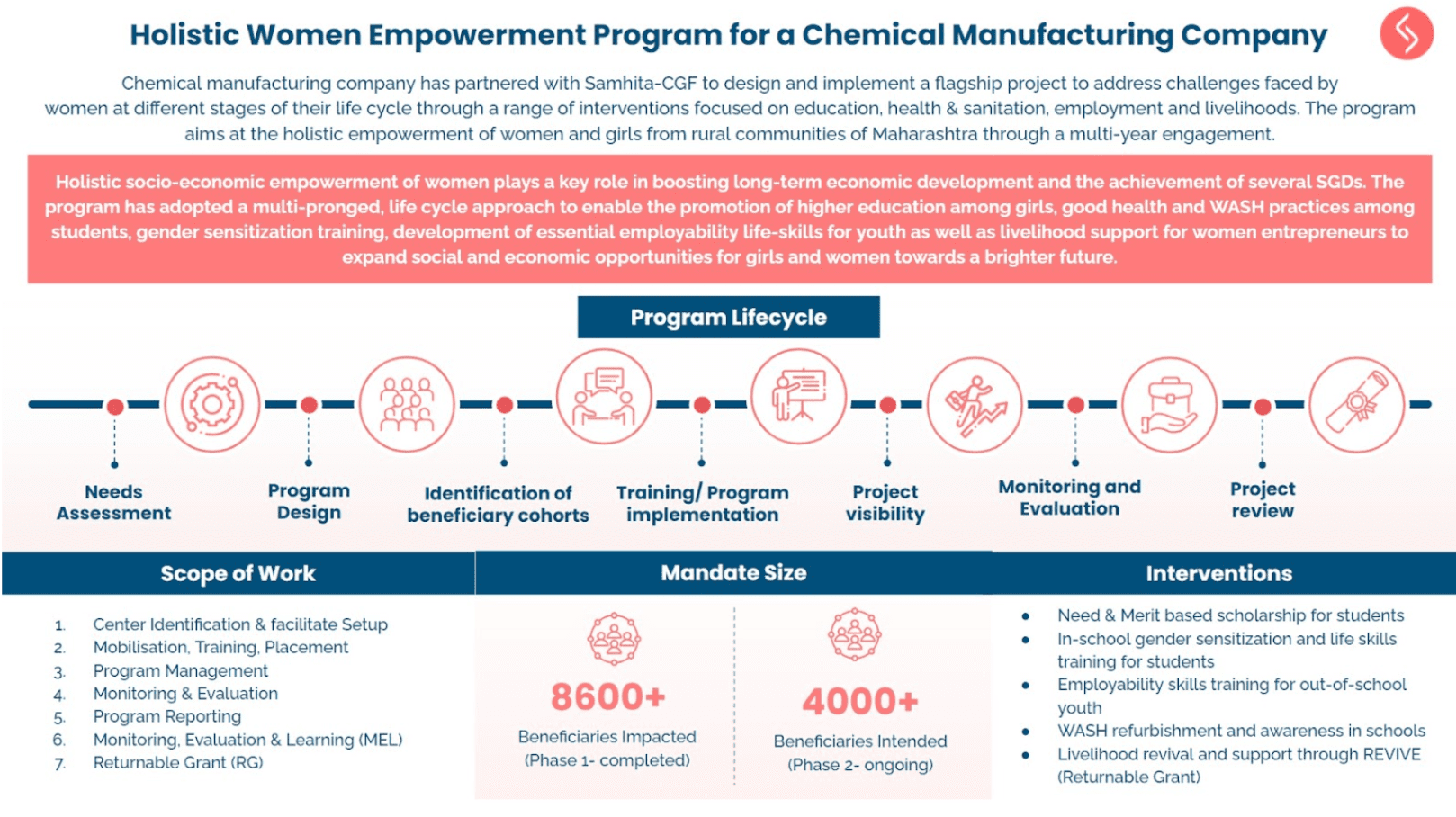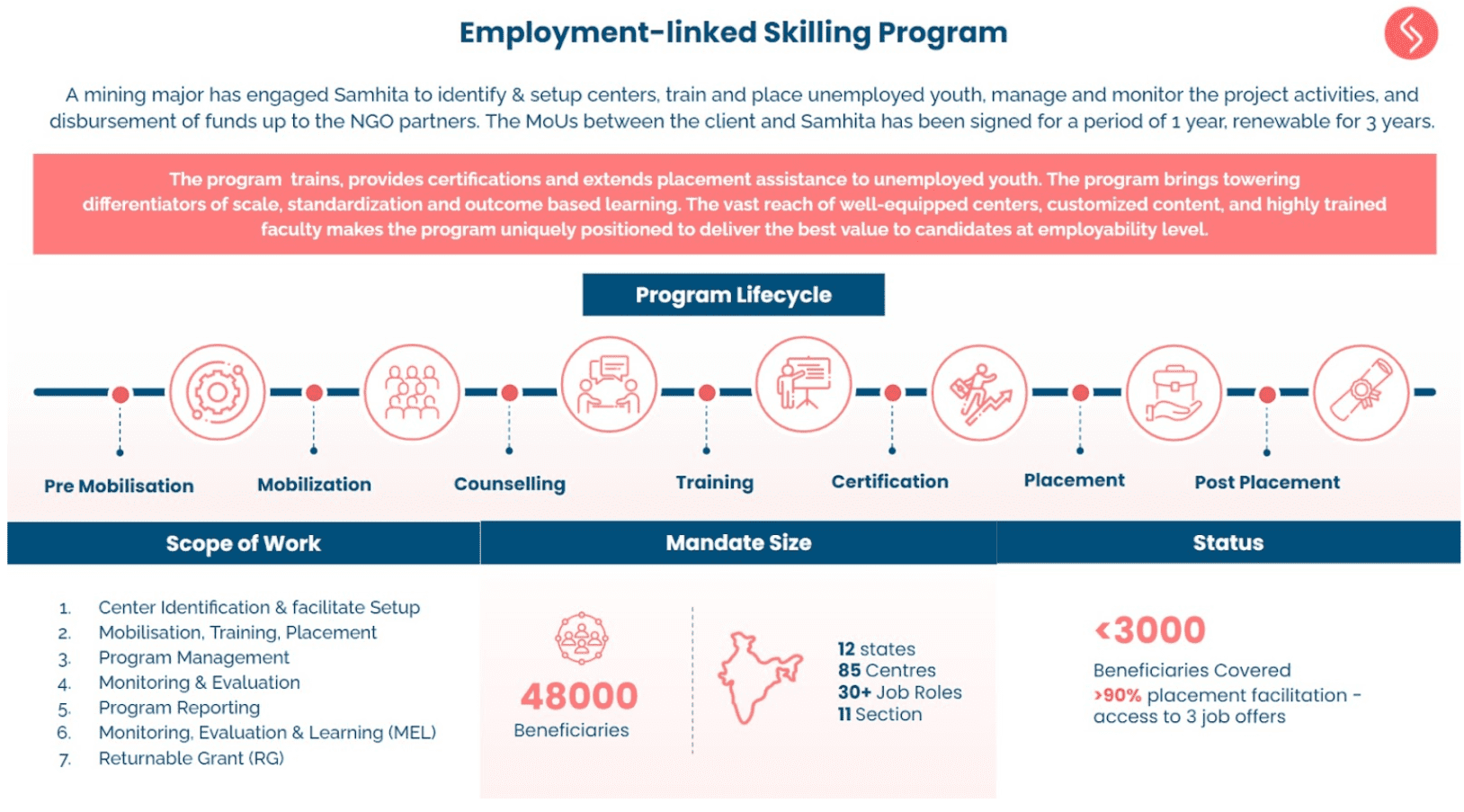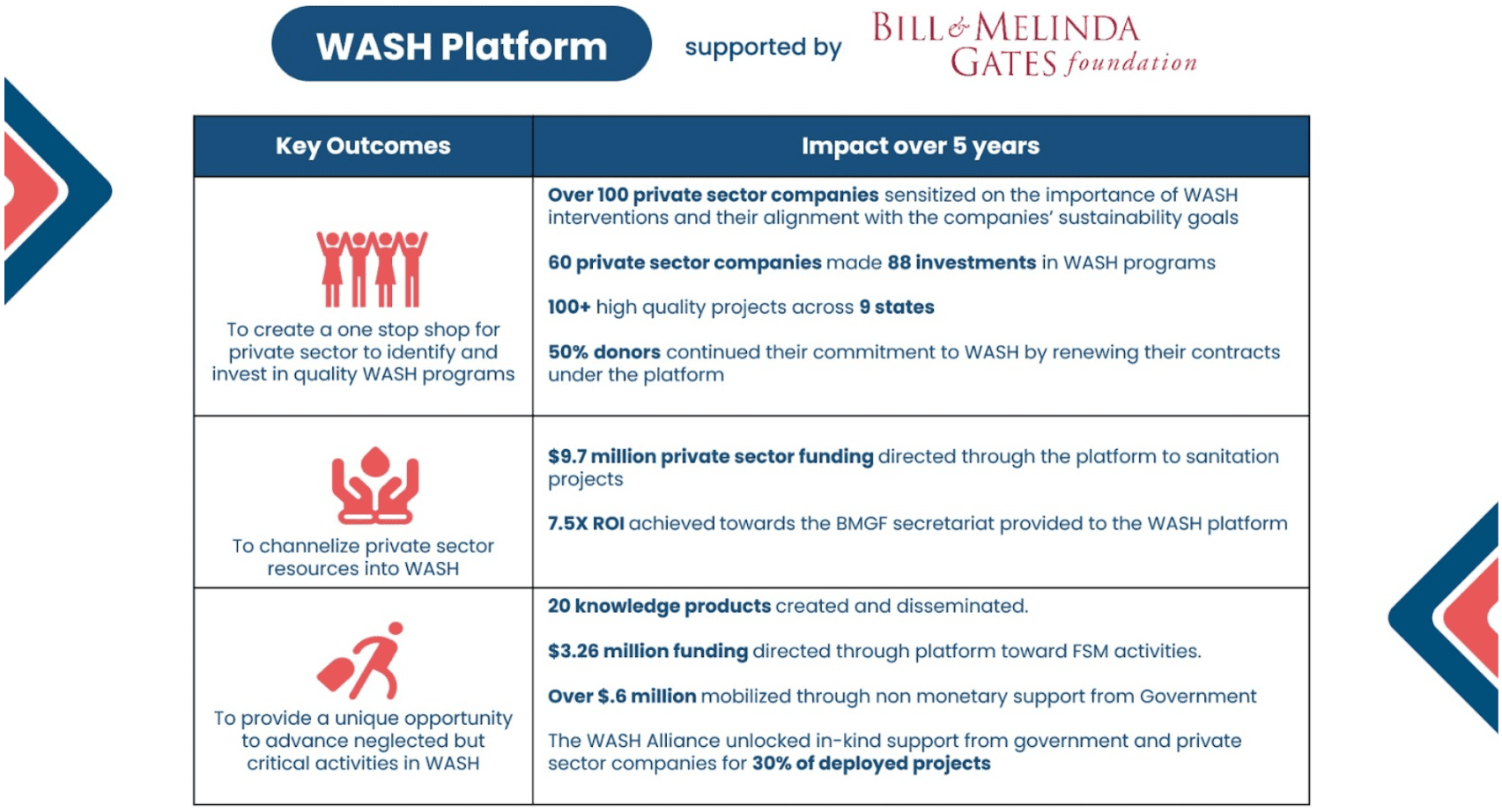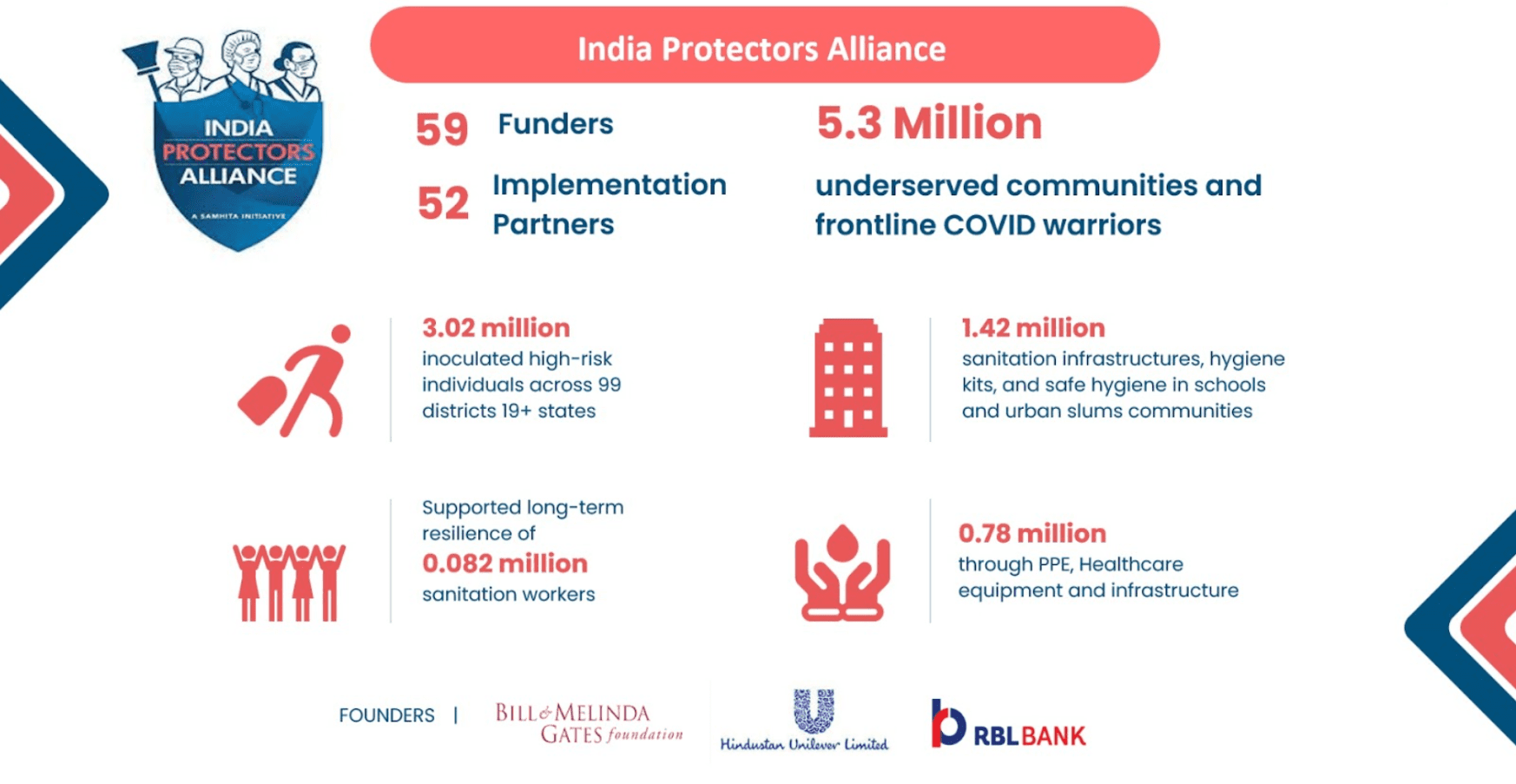Background
As per the state level data of 2023,1088 farmers tragically ended their lives in eight districts of Marathwada, Maharashtra’s most drought-affected region. This is the region with one of the highest rate of farmer suicide in India. The changing climatic patterns resulting in erratic rains only add to the farmer’s woes.
What’s missing? The answer lies in first educating the farmer about climate change and supporting their transition to climate-resilient agriculture alongside diversifying their sources of income. To address this Samhita-CGF has been committed to supporting and improving farmer’s lives by providing them with returnable grants (RGs) to support farmers with their capital needs. Alongside financial support, farmers are also provided training on climate-resilient agriculture that helps them increase their resilience to climate-related disturbances, such as droughts, floods, heat waves, and erratic rainfall. They are taught various techniques for efficient crop and water management such as drip irrigation, land leveling, crop rotation, cover crops etc. These trainings also offer the farmers insights into sustainable farming practices and alternative livelihoods. This approach not only helps them adapt to the changing climate but also aids in breaking the vicious cycle of debt and poverty.
Findings and Insights
By working closely with grassroots organizations and Farmer Producer Organisations (FPOs), Samhita-CGF has successfully impacted numerous farmers in the region. The positive change is becoming evident, as seen during a recent field visit to Tuljapur, Dharashiv, and Solapur districts, where in-depth interviews and group discussions revealed farmers sharing stories of improved incomes and multiple sources of revenue.
Many farmers who earlier followed the traditional single cash crop system had transitioned to a “one acre farming” model where multiple crop varieties are grown on a single acre for both income and household consumption. This approach allows the farmer to be self-sufficient and sell surplus crops, reducing the risk of loss if one crop underperforms. It also provides the family with a nutritious diet through diverse crop production. These farmers received the Returnable Grant from Samhita-CGF for Rs 10,000 and invested it in either buying cattle or on improving their crop production by diversifying varieties of crops and get more agriculture equipments. This has resulted in the farmers becoming self- sufficient which has significantly reduced their financial stress. Most of the farmers we met from different FPOs across various villages reported such success stories with some incomes reaching as high as Rs 1 lakh per month. These changes are also inspiring neighboring farmers, who are eager to learn new farming techniques and diversify their income streams.
{Case study: One such farmer successfully transitioned from a single cash crop system to a “one-acre farming” model. With a Rs 10,000 Returnable Grant from Samhita-CGF, the farmer purchased a cow to further diversify his income through dairy farming. The cow gave birth to a calf, increasing the herd to two, which provided a valuable additional income. Beyond dairy, the farmer set up a vermicomposting system to produce organic manure and installed a biogas plant for cooking. Both the farmer and his wife manage the farm and non-farm activities, making them fully self-sufficient without relying on outside help. This transition significantly boosted their income and alleviated financial stress, allowing them to lead a more sustainable and independent life. They expressed deep gratitude to Samhita-CGF for the support and training that helped them adopt climate-resilient agriculture and diversify their livelihoods.}
Challenges and way forward
Samhita-CGF’s model of returnable grants and climate-resilience training is proving to be a powerful catalyst for change in Marathwada region. However, a lot of white spaces still exist where farmers need to be supported to be able to sustain their livelihoods. Some of the major challenges that farmers continue to face are getting fair prices for their crops, infrastructure for storage and processing, organic farming certification and establishing market linkages. Some FPOs have managed to receive support from the government for getting organic farming certifications and establishing market linkages but majority of them continue to struggle with everyday operations of running the FPO due to paucity of funds. The farmers showed willingness to receive additional training on organic farming, market linkages, and branding for their product. Hence, more efforts towards capacity building of the FPOs need to be made so that farmers can be benefitted further and have sustainable livelihoods. Given the success of Returnable Grants and training on climate resilience agriculture provided by Samhita, we now plan on supporting the FPOs for market linkages via ONDC.




This blog was authored by Ipsita Gupta.





















